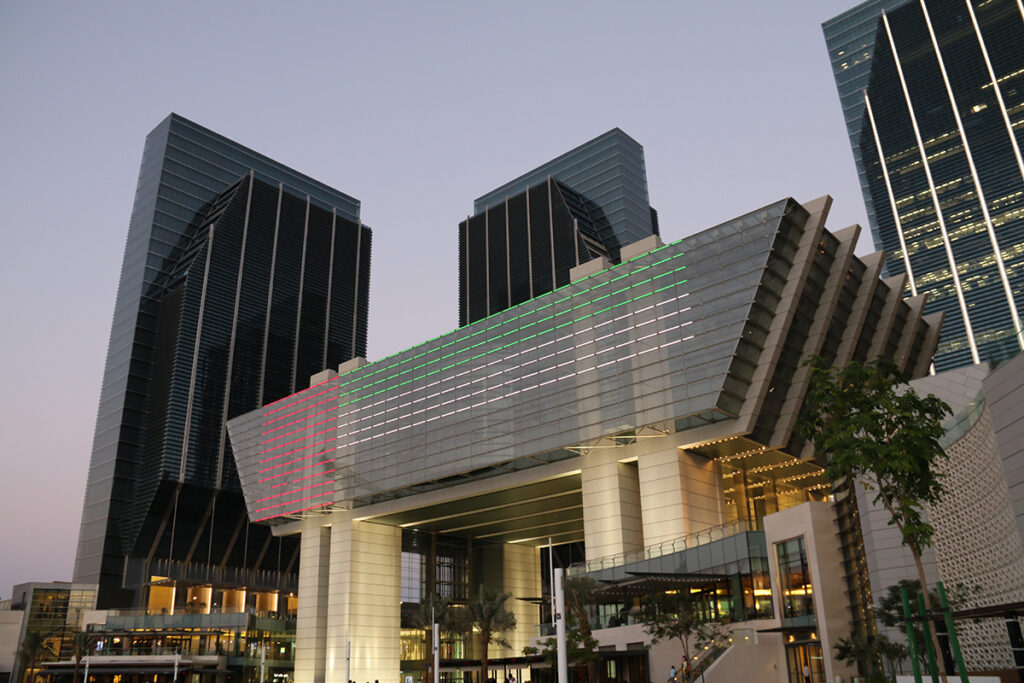Magnet For Hedge Funds, The UAE Could Change The $4.5tr Global Industry

A new research on the hedge fund industry has praised the effect Dubai and Abu Dhabi are having on what now has a size of over US$4.5 trillion.
‘The state of the hedge fund industry’, a report by the London-based IG Prime, said the Dubai International Financial Centre (DIFC) had attracted 60 hedge funds as of September 2024, and the Abu Dhabi Global Market (ADGM) is not far behind.
UAE attracts hedge funds
The UAE has “emerged as a magnet for hedge funds” and other financial institutions in recent years. Some of the world’s biggest hedge funds, including Millennium and Balyasny, have opened offices in the country, while overall employment in financial services has exploded to 44,000, up by two-thirds on the 2019 figure.
The report quoted an earlier IG Prime/Hedgeweek report in September last year, which found that a clear majority (62 per cent) of the hedge funds surveyed identified Abu Dhabi and Dubai as the ‘challenger’ hubs. These locations were expected to see the most hedge fund growth, ahead of India, Latin America and the Nordics.
Proximity to allocators was a key reason, but the report also highlighted tax advantages, time zone, and lifestyle as strong reasons.
“The huge wealth of the UAE, with the Gulf home to some of the world’s largest allocators to alternatives, has advanced the case for having not only traders but business development leaders in the region,” the report added.
The IG Prime report said the “lightly regulated financial centres” such as Dubai and Abu Dhabi could lead to a global change and “increase the pressure on regulators worldwide to carefully consider the impact of any new rules”.
The UAE is an area of focus for the IG Prime, and Max Hayden, Global Head of Prime Brokerage, said: “Everyone in the industry is talking about Dubai and Abu Dhabi and we’re seeing headcount in both places increase, driven by new satellite offices started by big firms and, a relatively new phenomenon, new hedge funds launching there.”
Turf war with PE firms
With some of the more ‘traditional’ hedge fund strategies failing to deliver over the last few years, investor demand for hedge funds to improve their returns has led to more of them investing in a wider array of alternatives such as private credit, private equity and private real estate.
The IG Prime research shows that 70 per cent of hedge funds now invest in private markets. As many as 61 per cent say they now invest in private equity, 45 per cent in private real estate, 39 per cent in private credit/debt and 38 per cent in infrastructure.

Demand for investment in private markets from investors has also been driven by a global trend toward delisting from stock markets and companies holding off on IPOs for longer. These are expected to continue driving growth for private markets in the future.
Hedge funds’ expansion into private markets means they are increasingly competing with private equity funds, who have also been expanding from private equity into other private asset classes such as infrastructure, private credit and real estate.
Chris Beauchamp, Chief Market Analyst at IG Prime, commented: “The growth of hedge funds has meant that there has been a crowding of trades that have traditionally worked well for them. Arguably some of the opportunities have been arbitraged away, which has driven funds to look for new ways of getting index-beating returns. Many hedge funds are seeing private markets as an answer.”
Private equity is the private market asset class with the fastest growth amongst hedge funds, with 58 per cent of hedge funds saying it’s the area they’ve most increased exposure in during the last year. Hedge fund managers are also increasing their exposure in real estate (48 per cent), private credit (31 per cent), infrastructure (30 per cent) and natural resources (34 per cent).
Despite its growing popularity, higher interest rates and uncertainty about the future of markets made private equity more difficult in 2024. That may change in the second half of this year as tariff levels continue to move down from their ‘worst case’ scenarios.
While private equity suffered in 2024, private credit has continued to grow rapidly – 31 per cent of hedge funds identified private credit as the area of greatest growth within private markets.
Stricter banking regulations and the withdrawal of bank lending have made private credit an important alternative for borrowers.
Beauchamp added: “While most hedge funds see private equity as the substantial growth investment in private markets, demand for hedge funds that invest in private credit have also been particularly strong.
“The question for hedge funds is what skills they bring to bear in these private market that might give them the edge over existing participants such as PE funds. Some will be competing directly with PE and private credit funds for the same investments. Others will be hoping that they can use the current tariff-related disruption to pick up assets priced for distress.”
Dubais Magellan Capital Launches Flagship $975m Hedge Fund
Dubai-based manager is opening its absolute return platform to third-party capital for the first time The post Dubai’... Read more
UAEs FAB Posts 22% Jump In Q4 Profit, Beats Estimates
UAE's biggest bank FAB reported a record 2025 profit after strong Q4 results, higher non-interest income and expanding ... Read more
Dubai Unveils $27.2bn DIFC Zabeel District In Landmark Financial Hub Expansion
Dubai unveils $27.2bn DIFC Zabeel District, a landmark expansion set to reshape the city’s financial hub amid global ... Read more
Digital Payments Dominate Saudi Arabia As Cash Use Continues To Decline, Visa Says
Visa research shows 80% of transactions in Saudi Arabia are now digital, highlighting accelerating consumer shift away ... Read more
Saudi Venture Capital Surges 145 Per Cent To $1.72bn In Record 2025
Saudi Arabia leads MENA venture capital for a third year, with 2025 investment reaching $1.72bn across a record 257 dea... Read more
GCC Debt Market Tops $1.1trn As Dollar Issuance Surges – Report
Fitch Ratings says GCC debt capital markets grew 14% in 2025, led by US dollar borrowing and record sukuk activity The ... Read more

